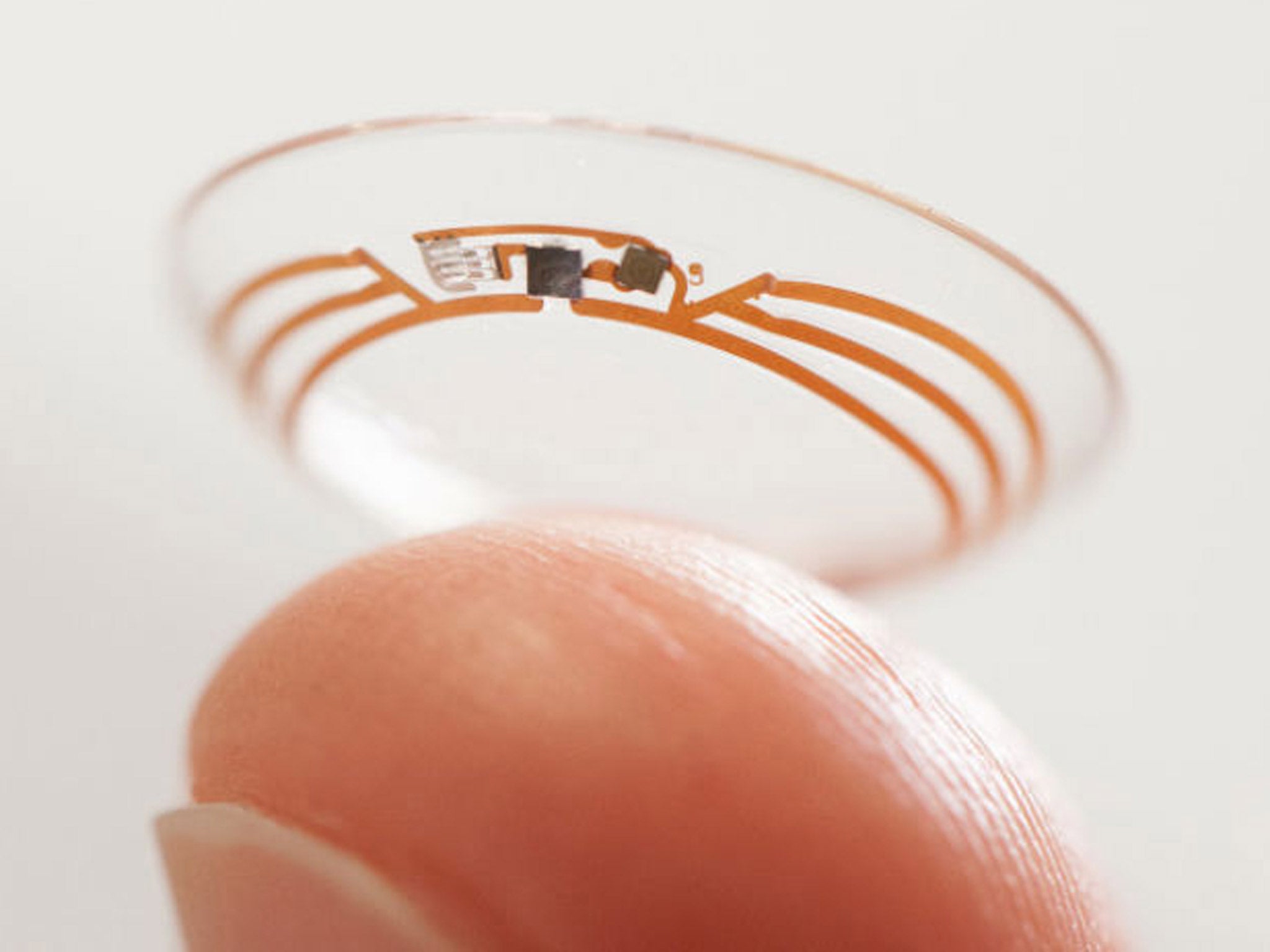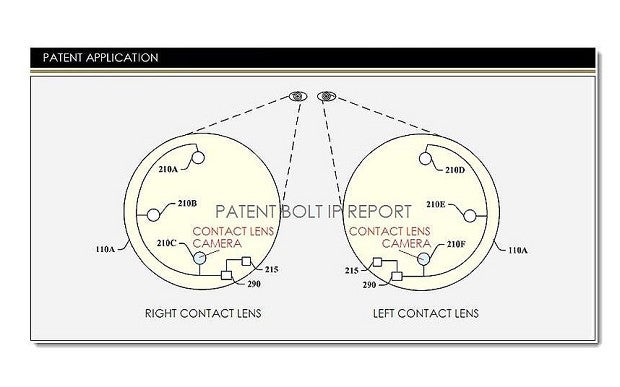Google Lens: 'Avalanche' of patent filings show Google is eyeing up smart contact lenses
Patents detail integrate cameras, pressure sensors and wireless connections to smartphone and other computers

Your support helps us to tell the story
From reproductive rights to climate change to Big Tech, The Independent is on the ground when the story is developing. Whether it's investigating the financials of Elon Musk's pro-Trump PAC or producing our latest documentary, 'The A Word', which shines a light on the American women fighting for reproductive rights, we know how important it is to parse out the facts from the messaging.
At such a critical moment in US history, we need reporters on the ground. Your donation allows us to keep sending journalists to speak to both sides of the story.
The Independent is trusted by Americans across the entire political spectrum. And unlike many other quality news outlets, we choose not to lock Americans out of our reporting and analysis with paywalls. We believe quality journalism should be available to everyone, paid for by those who can afford it.
Your support makes all the difference.It seems that Google Glass was only the beginning for wearable tech, with a series of new patent filings from Google suggesting that the internet giant is taking the concept of a 'smart contact lens' seriously.
Patent Bolt, a website dedicating to tracking new applications to the US Patent & Trademark Office, describes the string of recent filings as an “avalanche”.
The patents cover a range of features for contact lenses including an integrated camera; a ‘blink-command’ system that issue instructions to connected technology (eg changing the channel on your TV or radio station in your car); and a number of on-board sensors measuring everything from light exposure to pressure and temperature.
Although these are just patents (and tech companies routinely file these just to hedge their bets against future developments), Google has previously proved that it has a serious interest in the technology.
In January the company revealed a prototype lens that would help diabetics by monitoring glucose levels in the wearer’s tears. The company said that the technology could put an end to the painful daily blood tests that 380 million global diabetic suffers have to endure, and that the sensors were so small that they looked “like bits of glitter”.

Of all the recent filings though, the integrated camera is probably the most intriguing. In the patent Google says the component would sit at the edge of the lens and could connect wirelessly to another device (such as a smartphone) that would perform any necessary analysis.
Google suggests that the lenses might help the visually-impaired with navigating a busy street, detecting when they’re headed for a busy road for example, and sending a notification to their mobile as a warning buzz.
Getting the technology working is the hard part though, as once these components are in place the applications are limitless; a built-in camera could feasibly perform any number of functions from facial recognition for the police to diagnostic help for doctors.
In a way, the smart contact lens is a natural progression for Google as it would simply miniaturize the functions and applications currently being tested in Google Glass. The wearable computer, which has gone on general sale for 24 hours only in the US today, has been the focus of a new campaign by Google showing off its potential in the workplace.
The smart contact lens may be decades away from mainstream use of course (researchers only created the first LED screen for a contact lens in 2011 - and even then the ‘display’ was only a single pixel), but in Google Glass we're certainly getting a glimpse of the future.
Join our commenting forum
Join thought-provoking conversations, follow other Independent readers and see their replies
Comments